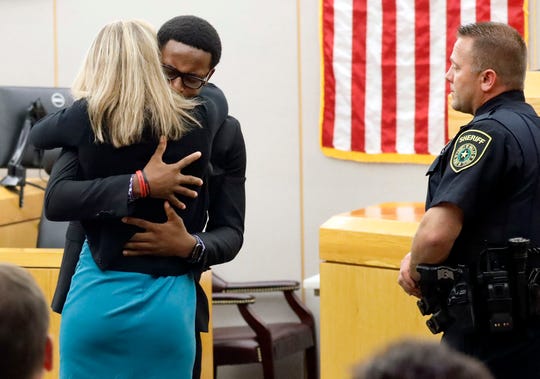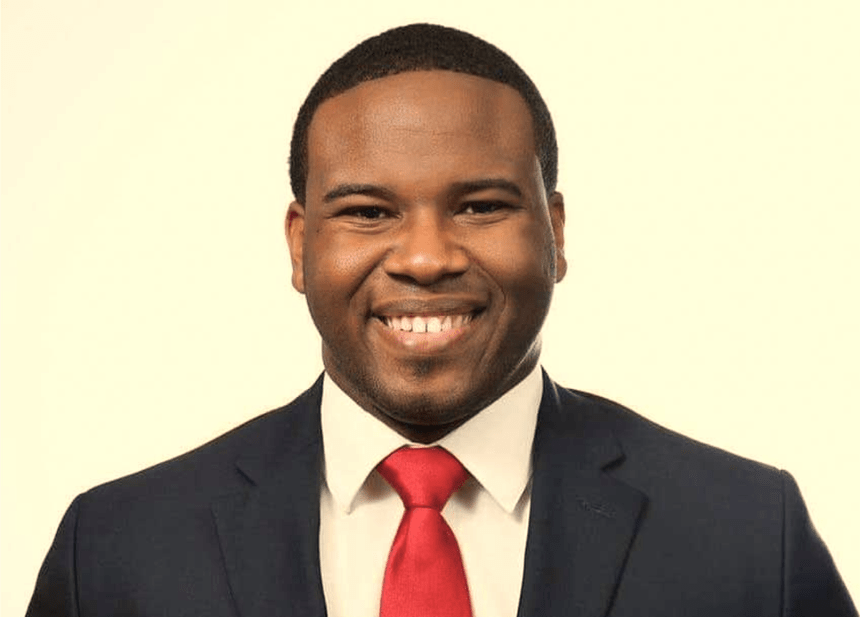When I was a seventh grader in a Massachusetts boarding school my hall prefect told me that all Black people look alike. I laughed—or rather cackled—at the foolishness of this girl. I thought of her as “mental,” in the common parlance of the day. Raised majority in Black countries up until then, I was ignorant of the power behind those words. Ignorant that Black people had been falsely accused and even killed because of racial codes that deny our individuality, our humanity. Or even that we feel pain at all.
A week later the small group of Black students in the school celebrated Black history month with a presentation at assembly. I had not been invited to participate nor was I notified about the event. My otherness, my lack of experience with racial history and discrimination, had separated me from the other students who look like me. In hindsight I wonder if my reaction to the prefect’s pronouncement had gotten back to them and they had mistaken my ignorance for callousness or worse, self loathing.
Being raised majority in a Black country is a completely different experience from growing up as a person of color in a white majority. While people like me who grew up in Black countries can learn the history and wear the masks necessary to our survival in America, we don’t know what it is like to feel the trauma of discrimination in our souls. We can always get on a plane and return to our home countries, something I plan to do within the next few years. Something Black people born and raised here cannot do because this is their home country.
Last week’s public display of forgiveness by the brother of deceased St. Lucia native Botham Jean is a case in which Black foreigners need to learn the history and the political context of living Black in America before they act publicly.

Botham Jean, a 26-year-old church-going risk assessment associate, was savagely shot to death while he was eating ice cream and watching TV in his own Dallas apartment last fall. His murderer was a neighbor, Amber Guyger, a white police officer who mistakenly thought that his apartment was hers and that he was a burglar, she said. This event was so absurd that the Internet exploded with the now-debunked theories that the two must have been dating and Guyger was a woman scorned.
The prosecutor requested a 28-year sentence for Guyger; she got 10. During his victim-impact statement the deceased’s 18-year-old brother, Brandt Jean, told Guyger that he loved her and that he “didn’t wish anything bad on her.” Speaking directly to the Black female judge, he asked if he could hug the defendant. “Please?” he asked, plaintively. Brandt and Guyger rushed into each other’s arms like they were in a scene from The Notebook, except this is not a love story, they are not actors and Botham Jean will not rise again to star in the next film.
The surviving brother told ABC TV’s Michael Strahan that he felt his dead brother would want him to forgive the former officer, and that he did not want his life destroyed by anger. I believe in the power—and the individual nature—of forgiveness. As a family member experiencing the worst kind of loss Brandt has the right to forgive Guyger. I just wish that he had done so in private, after the public sentencing, and after consulting his family, which he did not do. Sitting stoically next to Brandt during the ABC interview, the Jean family attorney, S. Lee Merritt, said that he supported the gesture of forgiveness on a spiritual level, but made it clear that justice is a separate issue.
Unfortunately, Brandt’s act of kumbaya has now become the story, eclipsing the one in which an innocent man—his own brother—was murdered while he ate ice cream and watched TV in his own apartment. At the other end of the gun that killed Botham Jean was a poorly trained officer with a history of written expressions of racial animus.
According to Mapping Police Violence, a report written by the Washington Post and resourced by the US Census Bureau, in 2018 police killed 215 Black people. Twenty-eight percent of the unarmed victims of police killings were Black. That is the story. I wish that Brandt knew that. I wish that Brandt recognized the impact of Guyger’s blood-free uniform and gloves, proof that she never even made an attempt to save his brother’s life after she realized her mistake. I wish that Brandt followed Guyger’s changing story about the murder, one that initially placed his brother in the role of aggressor, as if that is possible in his own space.
I wish that Brandt knew that as his Notebook moment made news, so did the story of Deandre Somerville, a 21-year-old Black man who was sentenced to 10 days in prison and a year of community service for missing one day of jury duty in West Palm Beach. Somerville, the caregiver for his grandfather and an employee at a youth nonprofit, said that 10 days in the pen with hardened criminals has forever changed his life. His white male judge, who perkily told Somerville that he was the only Black person on the jury and thus “important” to the system, eventually reduced his community service and probation.
I wish that Brandt knew the story of Chanel Miller, the Eurasian woman who was raped while unconscious by Brock Turner, a white Stanford swimmer at a fraternity party. Following the glowing statements of friends and relatives, Turner was sentenced to a short six months in prison rather than the slim fourteen months originally proposed—so as not to ruin his life. He ultimately served half of this sentence. Justice in America is not blind, and it is certainly not color blind when it comes to maintaining the privilege of a few. This is something that Black people new to American shores need to learn and learn quickly.
On September 6, 2018 Botham Jean was shot to death. Guyger did not see a St. Lucian, a devout Christian, a son, a brother or a PricewaterhouseCoopers risk assessment associate. She saw a Black man. A threat to her. In his own apartment. Eating ice cream. Watching TV. I wish that Brandt had fully grasped that before he made his public display of amazing grace.

Having double consciousness—a positive sense of self and a knowledge of the context in which we live in our adopted home of America—is critical to the survival of African diasporic people, and to us forging healthy relationships with one another. All of this is learned behavior, something I didn’t possess in seventh grade. Skills that I only developed after lengthy and numerous conversations with conscious family members, through the schooling of my college peers and through the university course Race Awareness in American Society, taught by a Black retired marine and race tester for the Massachusetts Commission on Discrimination.
In the meantime, a chilling detail in the transcript of Guyger’s 911 call continues to haunt me. It makes me wonder whether the hug being touted by the media as amazing grace (and tailor made to make liberals feel better after a string of needless civilian murders by police and Barbecue Becky incidents) was in fact just amazing ignorance: “I am going to lose my job,” Guyger said.
* * *
The murder of Joshua Brown, who was credited with being a key witness in the case against Guyger, and who was expected to testify in the family’s civil case against the police department, was shot to death on Friday night. The motive is unclear, and BE will continue to follow the case.
For more information on the foundation that the Jean family has established in honor of Botham Jean, please visit. https://bothamjeanfoundation.org. Chanel Miller’s stirring memoir of her rape and its aftermath, Know My Name, is available where you buy your books.

You must be logged in to post a comment.